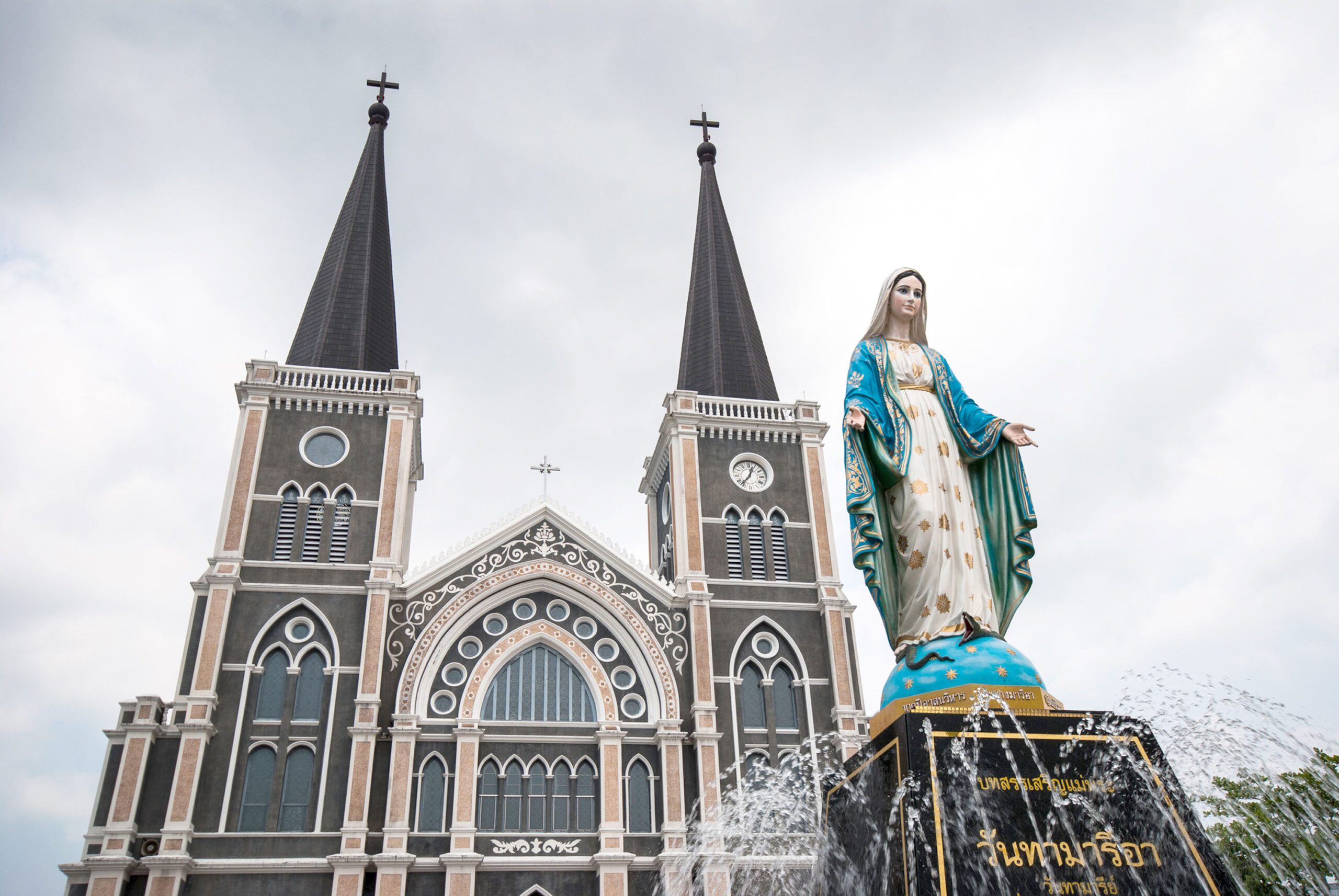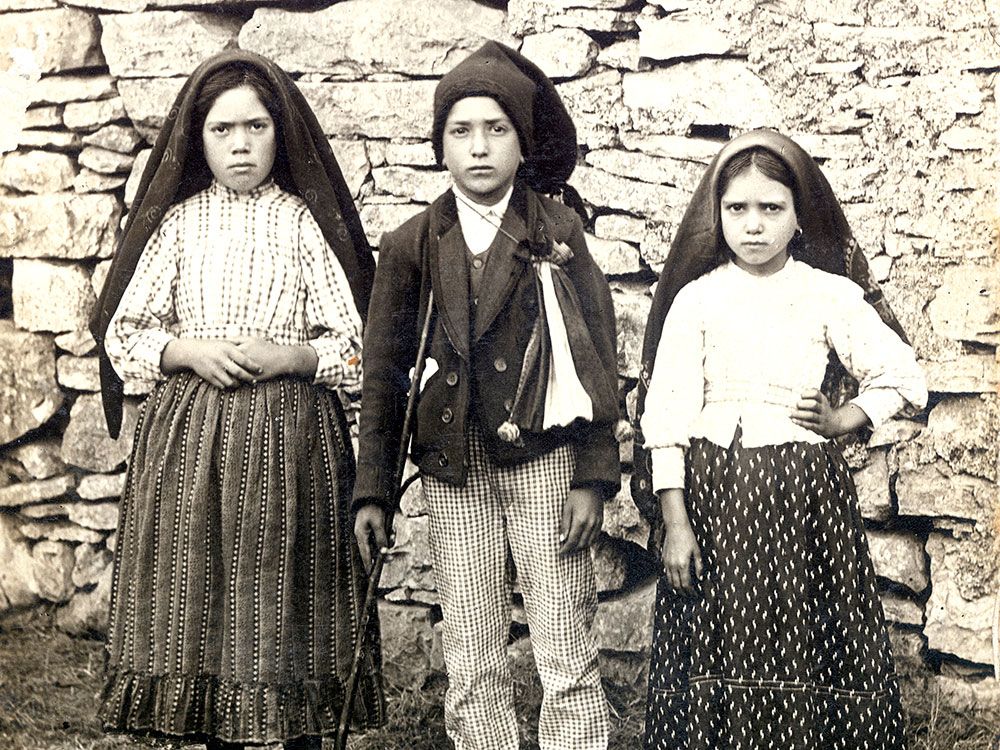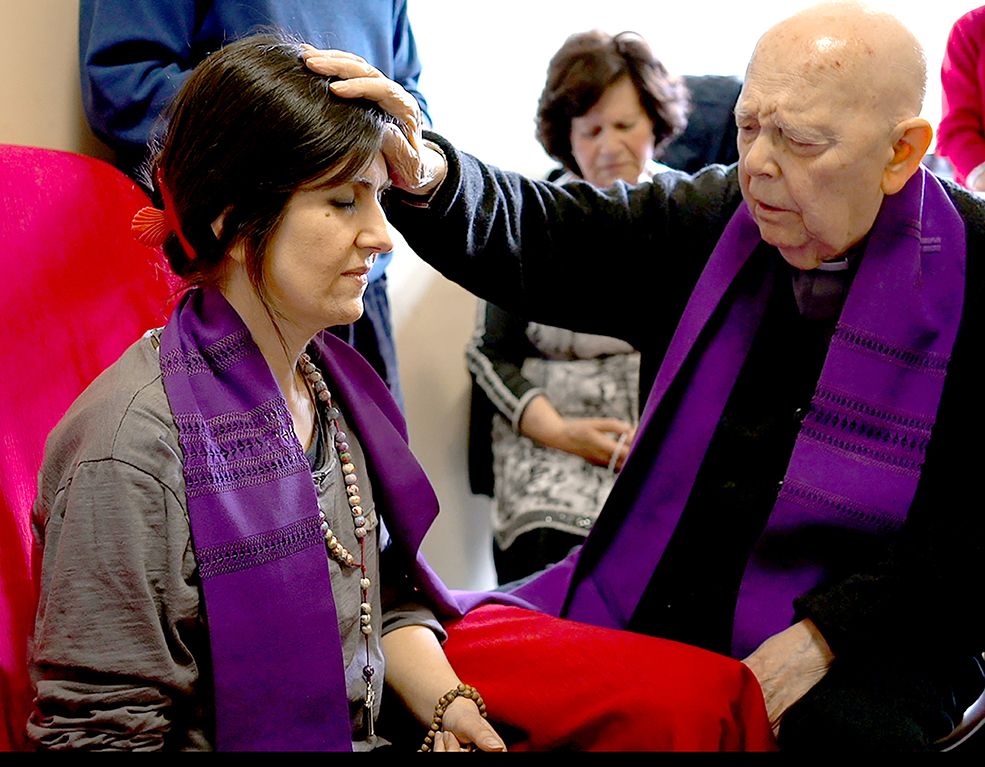God has always been part of human thought and experience. Paleontologists assure us that pre-historic people left behind signs of tributes to spiritual realities. We may know what they thought of God, but we know they tried to enter into communication with the spiritual world. Through the centuries, people have always looked upward, for it is in the heavens where they imagined the gods lived. Indeed, in many languages, the word for God is the same as the word for sky. Today, what are the images of God people have?
THE VIOLENT GOD
The thought that God could be a violent reality is not new. We know that many polytheistic religions included a god of war in their pantheon. In many cases, such gods allegedly ask for human sacrifices or acts of violence against foreigners. Yet, this seemed to be a way of describing God which disappeared, with the revelation of a God of Love. Unfortunately, even though no one would dare to openly proclaim God as a violent warrior, there are clear facts that lead to this.
It is undeniable that the world today is unsafe. Much of this is due to fundamentalists’ views on religion. In recent months, we have been witnesses of long spites of violence in the Middle East, of terror attacks in East and West Africa, of calls for Islamic jihad in the West. All these events can be traced back to the proclamation of hate by preachers who claim they speak on God’s behalf. This is particularly true – but not unique – of Islam.
The whole world has seen what is happening in Syria and Iraq. A group of fighters, who claim to be in the service of the Quran, are persecuting Christians, Muslim of different traditions, and other religious minorities. The indiscriminate killing of defenseless civilians – children, women and men – does not bother them. Among these fighters, there are some who come from Europe. They attended madarasa – religious instruction – and the local mosque. It seems like these religious meetings have become the occasion to proclaim violence instead of peace.
After a spate of terror attacks earlier this year in Kenya, Muslim leaders openly condemned the violence and underlined that the message of Islam is of peace. However, it seems that the perpetrators do not share this view. Police in Mombasa, Kenya found so called orphanages where children from various countries had been gathered and made to go through indoctrination. After a few years, these children are “sold” to terror groups to fight. These children are taught that violence is willed by God to ‘punish’ unbelievers and bring about God’s reign. Orphanages like that are common throughout Africa and the Middle East.
The question is not whether these people are fanatics who truly believe that God wants them to act violently. The point is how God is represented by their actions. It is what they do that stands out, and thus the image of a violent, bloodthirsty God is depicted around the world.
THE GOD OF SUCCESS
On the other side of the spectrum, we find the God of success. He is the God proclaimed by thousands of evangelists who literally shout from the rooftops. These preachers share their faith in God whom they describe as a miracle worker, healer, and origin of wonder. It goes without saying that the majority of these preachers do act in good faith. They truly believe in what they do. Often, they seem incapable to grasp reality for what it is. It is also true that, in doing so, they dupe people into believing in a God that does not exist. Most evangelical sects teach that everyone can have a personal relationship with God; that if we follow God’s word, He will bless us. Because of this, if one is rich, it means he is blessed by God. Poverty, misfortunes, illnesses – all these are signs that a person is sinful. Those who listen and believe in these proclamations are usually people who need comfort and support. They need reassurance and expect God to turn a benevolent eye on them, sooner or later. They expect success to come their way as a sign of God’s favor.
Another aspect of the God preached by these evangelists is the lack of social responsibility. Underlining a personal relationship with God goes hand in hand with putting the role of the community aside. What is important is to believe. There is no need to build up a community of believers, or to be involved within the community where one lives. This leads to the vacuity of ethical behavior. If God blesses through riches, no matter how status and riches are acquired, it means that God agrees with the person. Certainly, the great majority of people who follow these groups do not have strong principles. The issue remains: they are not challenged to act in society to prevent injustice, poverty, oppression of the poor. They may give to the poor, and they may be generous. However, they will not involve themselves in a process of social transformation to create new relationships within society.
The image of God heralded in this way is, therefore, negative; negative because it encourages people to look at God only as a dispenser of blessings. God becomes a reality that does not challenge the person to new horizons. And this is a God really different from the God of the Bible, who always hears the cry of the poor and comes down to walk among His people to liberate them.
THE JUDGE
To many Christians, God is a judge. Perhaps a benevolent judge, but a judge all the same. Last Christmas, I celebrated Mass in the cathedral of Malindi, a town on Kenya Coast. I told the people that God so (much) loved the world that He sent His Son. God then is a loving Father who cares for us. To my surprise, after Mass, a group of people waited for me outside the church and complained. They told me that we should not put our trust in mercy, that God is a severe judge and that – at the end of time – we shall have to face the consequences of our choices in life. I felt sorry for those people. At the same time, I realized how often God is depicted as a judge, as a person who just waits for the right moment to strike down sinners.
In this vision, God is certainly not a benevolent Person but a kind of accountant. He would be there all day keeping track of our failures, weaknesses, and our letdowns. Unfortunately, many people believe in such a God. They spend their existence fearing God, fearing His judgment. Instead of seeing life as a joyful gift from God, they go through it. What is worse is that this attitude gives a poor witness of the faith to other people who certainly are not encouraged to look at God as a Person with whom to have a relationship of faith.
THE FACELESS GOD
A few years ago, a movie filled with special effects was shown in theatres around the world: “Avatar,” the movie that became an overnight success. The authors took some aspect of African tribal life and beliefs and embedded them in the movie. A young man, through the help of a proxy body – an avatar – made contact with an aboriginal community on a distant planet. All the characters of the movie were either good or bad. Good versus evil will always be the underlying theme in these kinds of movies; to make characters only good and only evil is misleading. Some of the ideas portrayed in “Avatar” are now common in society, that is why the public easily accepts them in the movie. The movie reinforces their belief. The aboriginal people living in total communion with nature were the good guys. The humans, the colonizers, saw only profit and did not care for life; they were the bad guys. To become good, the humans had to return to Mother Earth – like the aboriginals, people who lived in idyllic symbiosis with nature. The aboriginals prayed to Mother Earth; they actually felt in total communion with the planet, from which they received life.
I found that movie spectacular, but misleading. The message was not certainly of a God close to the people. Instead, it promoted a religion without personal commitment, without God, without morality linked to personal choices. This is typical of Hollywood movies. Rarely do they portray faith, relationship with God, religion in a positive light. They do that perhaps to avoid touching religious sensibilities. Yet, the image they portray – and it is a powerful message – is that of an unclear morality, a set of values not firmly established, a God who is somehow good, but certainly not a Person searching for communion with the men and women of our time. It is a faceless God that could fit in the small horizon of many people, but it is certainly far away from the God of Abraham, Isaac, and Jacob.
THE GOD OF JESUS
In antiquity, people believed that great men would – after death – join the rank of the gods. In many civilizations, for instance in Egypt, people believed that the king was already divine. Even among the Romans, this idea was very popular. Since time immemorial, people wished to become gods. It is the lie of the serpent in Genesis 3: “If you eat the forbidden fruit, you will become like god!” The dream is to become powerful, to rise above others.
The builders of the Tower of Babel wanted to go up to the heavens and take the place of God. On a more positive note, reaching the Lord was also the highest aspiration of every religious person: climb to the heavens, become wholly spiritual, and mystically merge with the invisible God.
What a surprise when people were told for the first time that God, instead, wanted to become Man! And, indeed, He did it. With the incarnation of Jesus, God showed His “foolishness” as Paul says in 1 Corinthians 1:25. Only a foolish god could think not only of becoming a man, but to remain so: the Lord “emptied Himself, taking the form of a servant, being made in human likeness” (Phil 2:7). The Incarnation totally changed the God-man relationship. Now it would be anachronistic to think of raising our nature to be like God. It is enough to be human to share the nature of God, at least to share Jesus’ experience. In Jesus, there is no need to look for God; it is God who looks for us. The only thing asked of us from our end is to receive Him, for He is God with us, the Emmanuel. In Jesus, God has revealed Himself, attentive and sensitive to the sufferings of people and their needs. The more we deepen our human experience, the more we set free the Divine that is already in us. This is the wonderful surprise of the Incarnation of our Lord.
The image of God we see in Jesus is a true novelty. Jesus distanced Himself from the way the Law was understood during His time. It had become an instrument of power in the hands of the authorities. By brandishing the Law as a sword, they subdued the people. Religion had become a way to dominate, not free, the people. The believers were overwhelmed by the sacrifices they had to offer, the rules they had to follow. The Shabbat, the day when a pious Jew was to seek unity with God and neighbor, had become a nightmare. One was forbidden to perform the 39 works needed to build the Temple. Each of these 39 occupations was also divided in 39 actions. So in total, a Jew was forbidden to perform 1,521 different actions! There were rules for everything. To the normal believer, instead of being an expression of the will of God, the Law must have seemed a heavy stone to move along the path of life. For certain, it did not reveal the true face of the Father.
The Gospels tell us, first of all, that Jesus is “God with us” (Mt 1:23). The very idea that God makes Himself present in the lives of people is a refreshing one. It is an idea that could not be contained in the old skins of ancient religion. There was need for a profound change. If the old Covenant was based on obedience to the Law, the new alliance took a totally different direction. With Jesus, God is asking people to become like Him. To be son, in Semitic mentality, means to have a familiar relationship with the parent. It means also to be similar. To be sons and daughters of God means to welcome into our lives and behaviors God’s way of living. So service will not be directed to God, but to our neighbors.
The growth and maturity of the believer does not depend on the observance and obedience of the Law, but on the practice of love. It is the same love we receive from the Father – for this is how God pleased to reveal Himself to us – in a love that transforms us, making us capable to communicate it to our brothers. The Law is not abrogated. Jesus made it clear in His great speech on the mountain (Mt 5-7). There, Jesus explained the Law in greater detail. “You have heard that it was said … But I say to you …” With this expression, Jesus clarified the real meaning of the Law, which is an expression of God’s love, not a heavy rule to be obeyed.
So Jesus revealed God as Father and asked us not to obey, but to imitate the Father. We can do that not by following laws and decrees, but by growing in love. “You have heard that it was said: ‘Love your neighbor and hate your enemy.’ But I tell you: ‘Love your enemies and pray for those who persecute you, that you may be sons of your Father who is in heaven’” (Mt 5:43). To explain what it means to be like the Father, Jesus did not venture into complicated theological theories or philosophical disquisitions. He used a language and images understandable to all. The Father is the One who “makes His sun rise on the evil and on the good, and sends rain on the just and on the unjust” (Mt 5:45). This is the revolutionary image of God. Not a judge, not a supporter of success, God is the One who loves all without distinction: those who deserve it and those who do not.
Jesus’ invitation to” be perfect as the Father is perfect” (Mt 5:48) may seem stretching the point a bit. However, the perfection Jesus implied here is not the ability to do everything without blemish. The perfection of God is exactly love. When we love, we are perfect. When we are capable of service, of self-giving, we really become sons and daughters of God. It is then that we offer the world the real image of God.

































